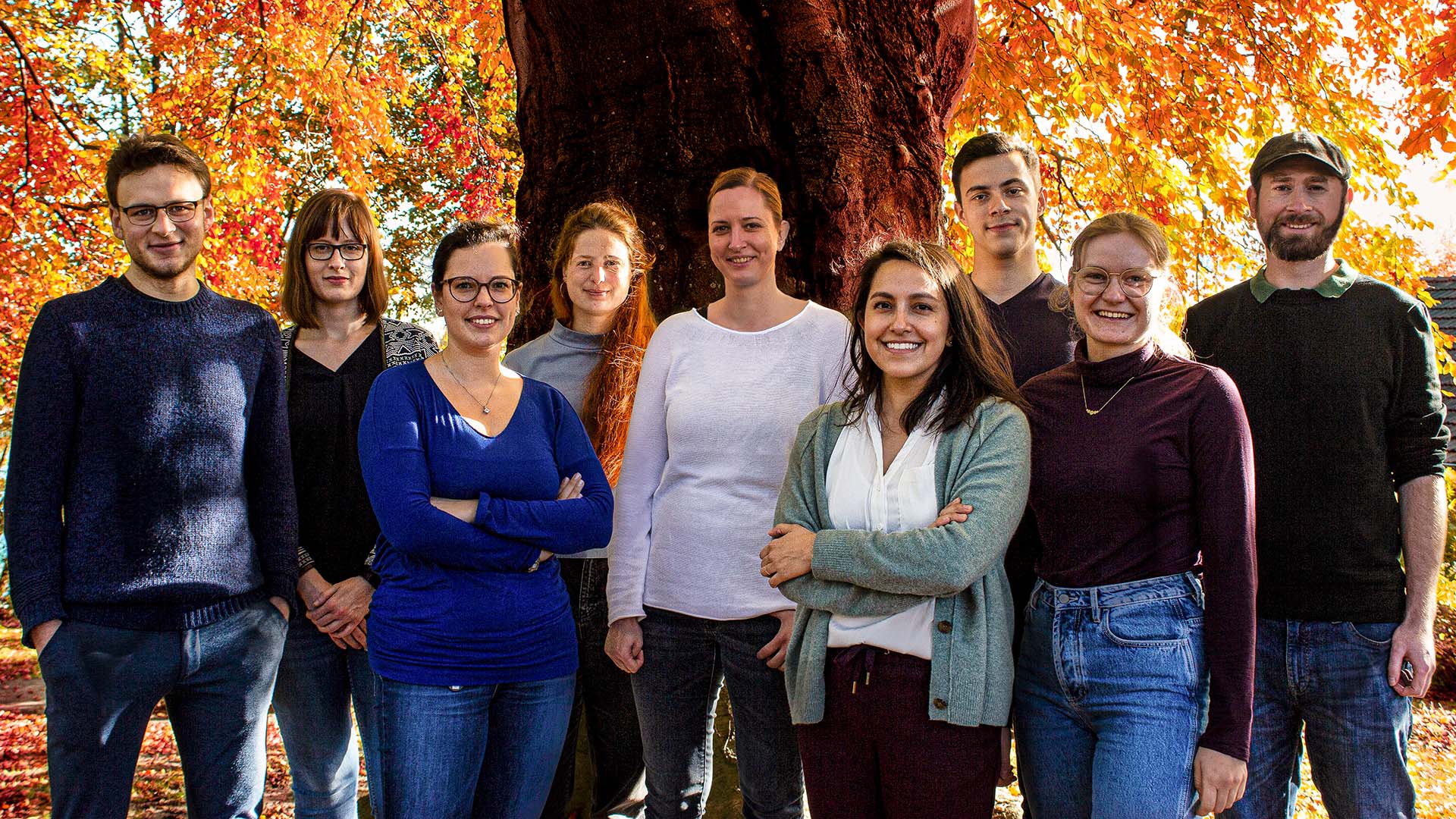
We are investigating the role of T-helper (Th) cells in immune-mediated diseases. Using novel approaches for the direct analysis of antigen-reactive Th cells, we try to understand why tolerance mechanisms of the immune system fail in patients with chronic inflammatory diseases.
Group leader:
,
Group members:
,
,
,
,
,
,
,
,
,
,
Our main focus is the role of antigen-specific Th cells in human immune responses. T helper (Th) cells are central organizers of immune responses. Via their T cell receptor, they are able to recognize a specific antigen. By releasing different effector cytokines, they can initiate a immune response appropriate to the antigen. However, inappropriate or too strong immune reactions can lead to immune pathologies, such autoimmunity, chronic inflammation or allergies. A specialized Th cell subpopulation, the regulatory T cells (Tregs) on the other hand, have suppressive properties. This enables them to dampen or even prevent the immune response against a certain antigen.
However, which T cells react against a particular antigen, which antigens are at all recognized and how protective immunity and tolerance is maintained or disrupted is in many clinically situations not known. Using novel approaches to analyze antigen-reactive Th cells directly ex vivo from human samples, we are conducting studies to understand why in patients with chronic inflammatory diseases, such as inflammatory bowel disease or allergies, tolerance mechanisms fail. Antigen-reactive Th cell analysis can be combined with powerful state-of-the-art analytical technologies, such as multidimensional flow cytometry, (single cell) transcriptomics, TCR sequencing and proteomics, to provide single cell information at high resolution. We aim to elucidate the interaction between environmental factors and microbial and inflammatory processes that lead to dysfunctions and inflammation. The analysis of these fundamental processes directly in cells from the human immune system will significantly advance our understanding of basic mechanisms underlying human immune-mediated diseases and speed up the development of new diagnostic as well as therapeutic strategies for chronic inflammatory diseases, autoimmunity or allergy.
Martini GR, Tikhonova E, Rosati E, DeCelie MB, Sievers LK, Tran F, Lessing M, Bergfeld A, Hinz S, Nikolaus S, Kümpers J, Matysiak A, Hofmann P, Saggau C, Schneiders S, Kamps AK, Jacobs G, Lieb W, Maul J, Siegmund B, Seegers B, Hinrichsen H, Oberg HH, Wesch D, Bereswill S, Heimesaat MM, Rupp J, Kniemeyer O, Brakhage AA, Brunke S, Hube B, Aden K, Franke A, Iliev ID, Scheffold A, Schreiber S, Bacher P. Selection of cross-reactive T cells by commensal and food-derived yeasts drives cytotoxic TH1 cell responses in Crohn’s disease. Nat Med. 2023 Oct;29(10):2602-2614. doi: 10.1038/s41591-023-02556-5. Epub 2023 Sep 25. PMID: 37749331; PMCID: PMC10579100.
Saggau C, Martini GR, Rosati E, Meise S, Messner B, Kamps AK, Bekel N, Gigla J, Rose R, Voß M, Geisen UM, Reid HM, Sümbül M, Tran F, Berner DK, Khodamoradi Y, Vehreschild MJGT, Cornely O, Koehler P, Krumbholz A, Fickenscher H, Kreuzer O, Schreiber C, Franke A, Schreiber S, Hoyer B, Scheffold A, Bacher P. Immunity. 2022 Aug 12;S1074-7613(22)00396-X. doi: 10.1016/j.immuni.2022.08.003. Online ahead of print.
Bacher P, Rosati E, Esser D, Rios-Martini G, Saggau C, Schiminsky E, Dargvainiene J, Schöder I, Wieters I, Khodamoradi Y, Eberhardt F, Vehreschild MJGT, Neb H, Sonntagbauer M, Conrad C, Tran F, Rosenstiel P, Markewitz R, Wandinger, K-P, Augustin M, Rybniker J, Kochanek M, Leypoldt F, Cornely OA, Koehler P, Franke A, Scheffold A. Immunity 2020
Bacher P, Hohnstein T, Beerbaum E, Röcker M, Blango MG, Kaufmann S, Röhmel J, Eschenhagen P, Grehn C, Seidel K, Rickerts V, Lozza L, Stervbo U, Nienen M, Babel N, Milleck J, Assenmacher M, Cornely OA, Ziegler M, Wisplinghoff H, Heine G, Worm M, Siegmund B, Maul J, Creutz P, Tabeling C, Ruwwe-Glösenkamp C, Sander LE, Knosalla C, Brunke S, Hube B, Kniemeyer O, Brakhage AA, Schwarz C, Scheffold A. Cell. 2019; 176(6):1340-1355.e15.
Rosati E, Rios Martini G, Pogorelyy MV, Minervina AA, Degenhardt F, Wendorff M, Sari S, Mayr G, Fazio A, Dowds CM, Hauser C, Tran F, von Schönfels W, Pochhammer J, Salnikova MA, Jaeckel C, Gigla JB, Sabet SS, Hübenthal M, Schiminsky E, Schreiber S, Rosenstiel PC, Scheffold A, Thomas PG, Lieb W, Bokemeyer B, Witte M, Aden K, Hendricks A, Schafmayer C, Egberts JH, Mamedov IZ, Bacher P, Franke A. Gut. 2022 Mar 9:gutjnl-2021-325373.
Bacher P, Heinrich F, Stervbo U, Nienen M, Vahldieck M, Iwert C, Vogt K, Kollet J, Babel N, Sawitzki B, Schwarz C, Bereswill S, Heimesaat MM, Heine G, Gadermaier G, Asam C, Assenmacher M, Kniemeyer O, Brakhage AA, Ferreira F, Wallner M, Worm M, Scheffold A. Cell. 2016Nov 3;167(4):1067-1078.e16.
University Hospital Schleswig-Holstein
Institute of Immunology
Arnold-Heller-Straße 3
Haus U30
24105 Kiel